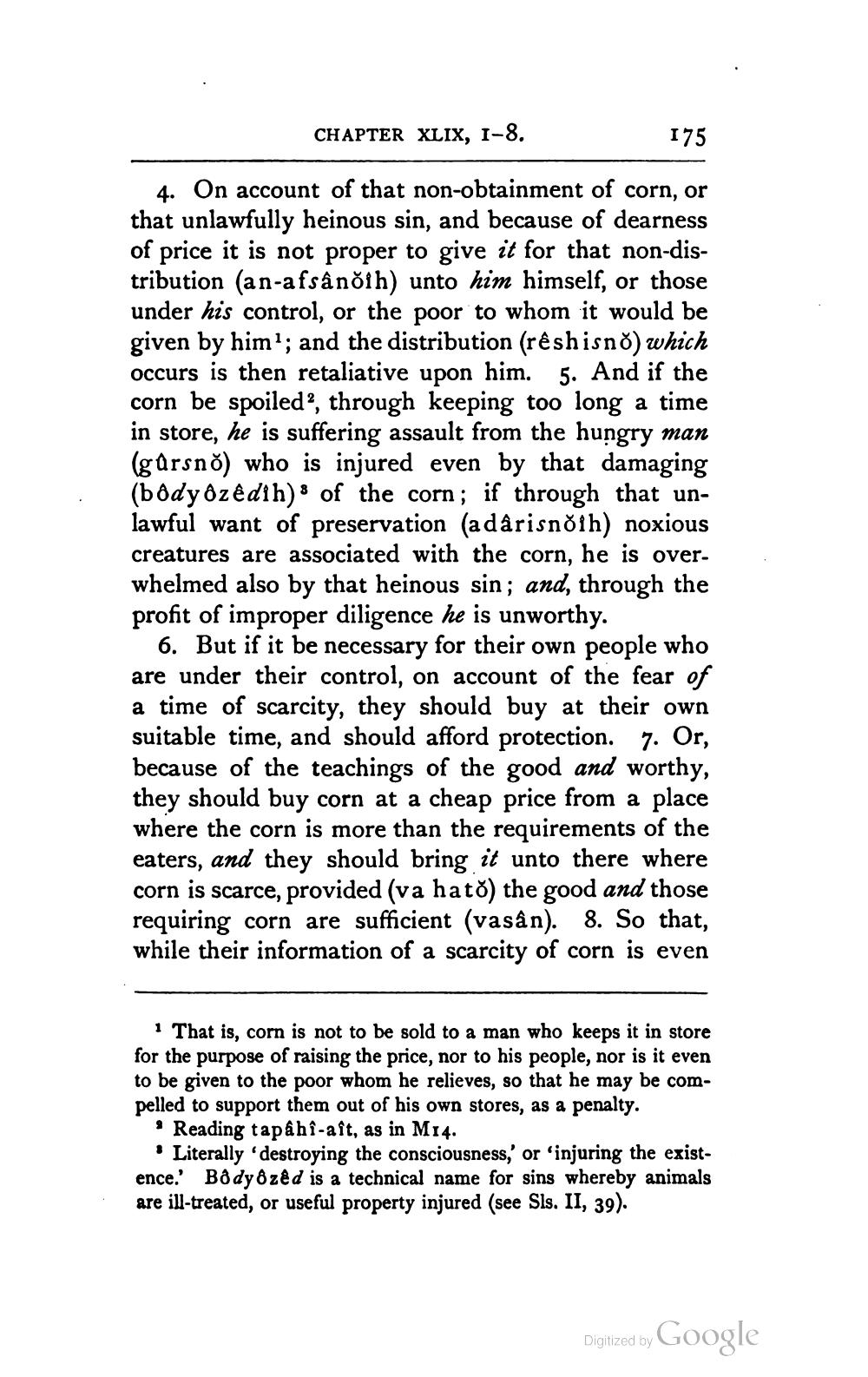________________
CHAPTER XLIX, 1-8.
175
4. On account of that non-obtainment of corn, or that unlawfully heinous sin, and because of dearness of price it is not proper to give it for that non-distribution (an-afsânõih) unto him himself, or those under his control, or the poor to whom it would be given by him?; and the distribution (rêshisno) which occurs is then retaliative upon him. 5. And if the corn be spoiled?, through keeping too long a time in store, he is suffering assault from the hungry man (gârsno) who is injured even by that damaging (bôdyőzêdih) of the corn; if through that unlawful want of preservation (adârisnõih) noxious creatures are associated with the corn, he is overwhelmed also by that heinous sin; and, through the profit of improper diligence he is unworthy.
6. But if it be necessary for their own people who are under their control, on account of the fear of a time of scarcity, they should buy at their own suitable time, and should afford protection. 7. Or, because of the teachings of the good and worthy, they should buy corn at a cheap price from a place where the corn is more than the requirements of the eaters, and they should bring it unto there where corn is scarce, provided (va ható) the good and those requiring corn are sufficient (vasân). 8. So that, while their information of a scarcity of corn is even
1 That is, corn is not to be sold to a man who keeps it in store for the purpose of raising the price, nor to his people, nor is it even to be given to the poor whom he relieves, so that he may be compelled to support them out of his own stores, as a penalty. • Reading tapahî-a it, as in M14.
Literally destroying the consciousness,' or 'injuring the existence.' Bôdy ozêd is a technical name for sins whereby animals are ill-treated, or useful property injured (see Sls. II, 39).
Digitized by Google




